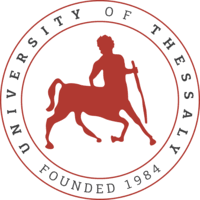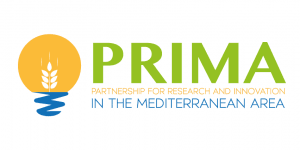
The University of Thessaly (UTH), with 37 Departments, and 8 schools is a University with its own identity and with a prominent position in our national educational system. UTH provides undergraduate and postgraduate programs and extra-curricular modules in specific research and business fields, for over 43,000 students. The main mission of UTH is the promotion of scientific knowledge through research and the contribution to the cultural and economic development of the local community and wider society. It is known for its excellent research performance and outstanding scientific achievements, in accordance with the international standards. The excellent equipped laboratories of the different departments and research units have a number of well-trained researchers to support them. The Laboratory of Entomology and Agricultural Zoology (LEAZ) is an autonomous research unit that belongs to the School of Agricultural Sciences, Department of Agriculture, Crop Production and Rural Environment (DACPRE) of UTH. During the last decade, LEAZ has been expanded to many aspects of the science of entomology, including crop and orchard pests, public health pests, forest pests and post-harvest pests. At the same time, LEAZ conducts research for the implementation of integrated and biological control, as well and the utilization of insects for alternative uses, incl. food and feed. Overall, LEAZ has obtained a prominent position at the national, European and international level, and has attracted funding that exceeds 8,000,000 Euros during the last 10 years, from different sources (H2020, LIFE, MED, USDA, USAID, ECPA, IAEA, EFSA, etc.).
Team members involved in the project
The University of Thessaly (UTH), with 37 Departments, and 8 schools is a University with its own identity and with a prominent position in our national educational system. UTH provides undergraduate and postgraduate programs and extra-curricular modules in specific research and business fields, for over 43,000 students. The main mission of UTH is the promotion of scientific knowledge through research and the contribution to the cultural and economic development of the local community and wider society. It is known for its excellent research performance and outstanding scientific achievements, in accordance with the international standards. The excellent equipped laboratories of the different departments and research units have a number of well-trained researchers to support them. The Laboratory of Entomology and Agricultural Zoology (LEAZ) is an autonomous research unit that belongs to the School of Agricultural Sciences, Department of Agriculture, Crop Production and Rural Environment (DACPRE) of UTH. During the last decade, LEAZ has been expanded to many aspects of the science of entomology, including crop and orchard pests, public health pests, forest pests and post-harvest pests. At the same time, LEAZ conducts research for the implementation of integrated and biological control, as well and the utilization of insects for alternative uses, incl. food and feed. Overall, LEAZ has obtained a prominent position at the national, European and international level, and has attracted funding that exceeds 8,000,000 Euros during the last 10 years, from different sources (H2020, LIFE, MED, USDA, USAID, ECPA, IAEA, EFSA, etc.).
Team members involved in the project
Christos Athanassiou (male). PhD in Agricultural Sciences. He is a Full Professor at DACPRE with expertise in insect pest biology and control, through chemical and non-chemical methods, for species that occur in agriculture, forest, post-harvest and urban ecosystems. He is/has been project coordinator/team leader in several national, European and international projects, funded by different bodies (H2020, LIFE, MED, USDA, IAEA, etc.). He has authored/coauthored >250 peer reviewed papers in international journals, plus approx. 300 more papers (papers in international conferences etc.) with a total h-index of 33 (Scopus), and more than 6,500 citations.
Christos Rumbos (male). PhD in Agricultural Sciences. He is a post-doc scientist in DACPRE, working with different aspects of crop production and protection, i.e. insects, fungi and nematodes. He is author of more than 40 papers in international journals, with a total h-index of 10 (Scopus).
Sakka Maria (female) and Agrafioti Paraskevi (male) are PhD candidates in UTH, with a considerable level of experience in post-harvest insect control, significant involvement in research projects and >10 publications in scientific journals each.
Publications and/or products, services related to the project
Athanassiou C. G., Phillips T. W. and Wakil W. (2019). Biology and control of the khapra beetle, Trogoderma granarium, a major quarantine threat for global food security. Annual Review of Entomology 64: 131-148.
Djekic I., Mujcinovic A., Nikolic A., Jambrak A. R., Papademas P., Feyissa A. H., Kansou K., Thomopoulos R., Breisen H., Kavallieratos N. G., Athanassiou C. G., Silva C. L. M., Sirbu A., Moisescu A. M., Tomasevic I., Brodnjak U. V., Charalambides M. and Tonda A. (2019). Cross-European analysis on the use of mathematical models in food industry. Journal of Food Engineering 261: 109-116.
Rumbos C. I., Karapanagiotidis I., Mente E. and Athanassiou C. G. (2018). The lesser mealworm Alphitobius diaperinus: a noxious pest or a promising nutrient source? Reviews in Aquaculture 12300(2018):1-20.
Kavallieratos N. G., Athanassiou C. G., Guedes R. N. C., Drempela J. D. and Boukouvala M. C. (2018). Invader competition with local competitors: displacement of coexistence among the invasive khapra beetle, Trogoderma granarium Everts (Coleoptera: Dermestidae), and two other major stored-grain beetles? Frontiers in Plant Science 8: 1837.
Hubert J., Stejskal V., Athanassiou C. G. and Throne J. E. (2018). Health hazards associated with arthropod infestation of stored products. Annual Review of Entomology 63: 553-573.
Previous projects or activities connected to the subject of this proposal
Coordinator in FF-IPM “In-silico boosted, pest prevention and off-season focused IPM against new and emerging fruit flies”, H2020 project (2019-2023). Grant agreement ID: 818184. Coordinator in “Development of carbon nanotube-based wireless gas sensors and applications in stored product protection and food safety”, EU co-funded (2018-2021). Coordinator in “Optimizing lures and traps for surveillance of the khapra beetle and related dermestids in food facilities in Greece”, funded by USDA- APHIS (2018-2019). Partner in LIFE BIODELEAR “Assessing medfly with an innovative and environment friendly attractant through an Integrated Pest Management Strategy”, LIFE13 ENV/GR/000414 (2014-2019). Coordinator in “Dormancy manipulations of Rhagoletis cerasi pupae towards an effective Sterile Insect Technique project”, funded by International Atomic Energy Agency (2013-2019).
Description of infrastructure and/or technical equipment relevant to the proposal work
- Environmental Scanning Electron Microscopy
- 8 Walk-in Climatic Chambers and cages for insects’ mass rearing
- 10 climatic chambers of controlled conditions (1,200l in capacity)
- 8 Greenhouses of different sizes
- Fully equipped molecular biology laboratory – Microscopes and Stereoscopes also equipped for fluorescence examination and macro recording camera
- Gas chromatography (GC/FID/Plasma)
- Wireless sensors for the detection of pesticides along with calibration setup
- NIR
- HPLC
- Pilot units for the application of nitrogen and CO2.

